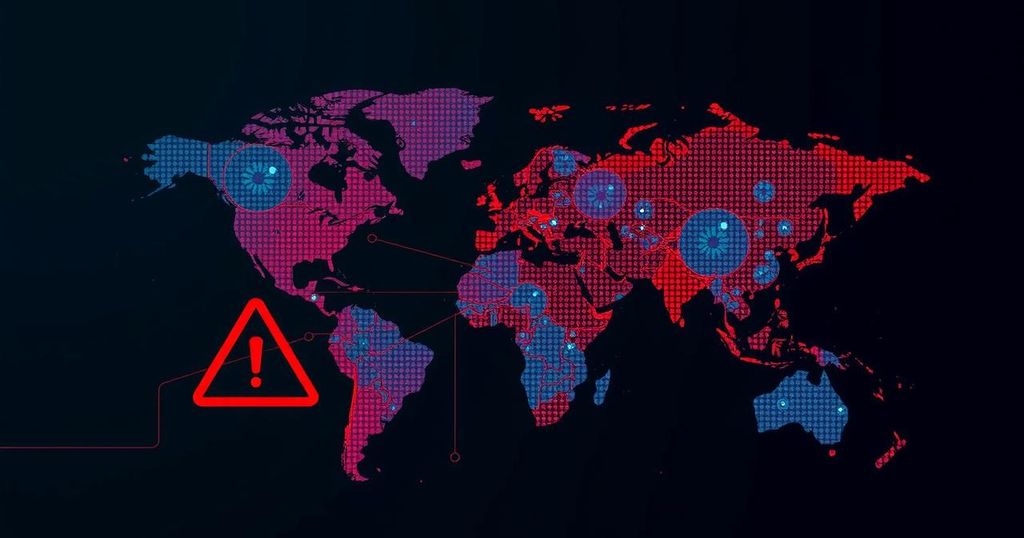Swiss Re Issues Urgent Warning on Economic Threats from Climate Change

Swiss Re warns that extreme weather due to climate change is causing substantial economic losses, particularly for the U.S. and the Philippines. The insurer’s report highlights escalating risks from floods, cyclones, and other weather extremes, while urging businesses to adopt preventive measures and invest in risk management to mitigate potential financial impacts.
In a significant announcement, Swiss Re, one of the globe’s leading insurance companies, has stressed the urgency for businesses to acknowledge the financial ramifications of climate change. The insurer’s analysis indicates that economic losses due to extreme weather events are projected to escalate, with the United States and the Philippines identified as the most vulnerable nations. The report emphasizes ongoing perils such as floods, tropical cyclones, winter storms, and severe thunderstorms, all of which are becoming increasingly severe owing to rising global temperatures.
Swiss Re highlighted that, in the United States, the annual economic losses attributed to extreme weather currently amount to approximately 0.38% of the GDP, translating to around $97 billion. Jérôme Jean Haegeli, the group’s chief economist, remarked, “Climate change is leading to more severe weather events, resulting in increasing impact on economies.” The report calls for enhanced adaptation measures as a means of boosting insurability and promoting necessary investment in risk mitigation strategies.
The challenges posed by climate change are particularly concerning. The United States has experienced significant extreme weather conditions, such as devastating hurricanes and wildfires in 2024. The projected economic impacts of Hurricanes Helene and Milton alone could reach $400 billion, with repair costs in North Carolina estimated at $53 billion. Furthermore, a study from IMPLAN found that wildfires incurred a loss of $89.6 billion in economic output. The National Oceanic and Atmospheric Administration (NOAA) further documented that the past decade has seen the ten warmest years on record, emphasizing the continuity of climate change and its repercussions on extreme weather events.
To mitigate these growing economic losses, businesses must recognize the increasing difficulty of obtaining financial protection against extreme weather, as insurance costs continue to rise. Prevention has become a paramount strategy, evidenced by companies like Savannah Trims, which have implemented flood protection measures to safeguard their assets. Moreover, businesses are encouraged to adopt pollution-reducing practices, such as transitioning to electric vehicles, evaluating product material choices, and fostering energy conservation on their premises. These measures not only serve to minimize financial risks but can foster customer loyalty through responsible environmental practices.
In summary, the warnings issued by Swiss Re serve as a critical reminder of the urgent need for systemic change in how businesses manage climate-related risks. As extreme weather events become more frequent and severe, it is essential that companies take proactive steps to adapt, protect their economic interests, and contribute to global efforts in combating climate change. Through responsible practices, businesses not only safeguard their future but also build trust and loyalty among their clientele.
The warnings from Swiss Re underscore a growing concern among economists and insurers regarding the escalating financial threats posed by climate change. Among these threats are severe and frequent extreme weather events, which disproportionately affect economically vulnerable regions like the United States and the Philippines. With the rise in global temperatures, insurance companies must reevaluate the risks involved, emphasizing the need for businesses to adopt adaptive measures that can mitigate losses and foster economic sustainability.
The insights articulated by Swiss Re compel businesses to confront the realities of climate change and its economic implications. With rising losses forecasted due to extreme weather, the necessity for effective adaptation strategies becomes apparent. By implementing environmentally responsible practices, businesses can not only protect themselves financially but also contribute positively to the global fight against climate change, ensuring long-term viability and economic resilience.
Original Source: www.thecooldown.com






